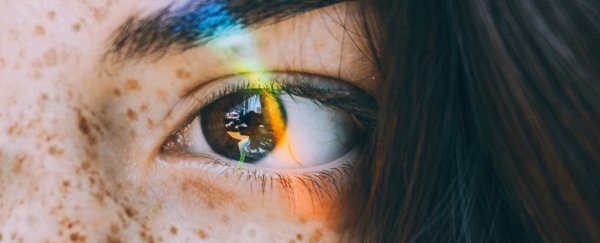At the very core of your identity a kernel of self awareness combines memories of the past with the fleeting sensations of the present, and adds a touch of anticipation for the future.
The question of whether this ongoing sense of 'you' is as robust as it feels has intrigued philosophers and psychologists throughout the ages. A new, small psychobiological study weighs in, looking at brain scans to conclude that at least some part of you is indeed consistent as you grow and age.
"In our study, we tried to answer the question of whether we are the same person throughout our lives," says Miguel Rubianes, a neuroscientist from the Complutense University of Madrid.
"In conjunction with the previous literature, our results indicate that there is a component that remains stable while another part is more susceptible to change over time."
Self-continuity forms the very basis of identity. Every time you use the word 'I', you're referring to a thread that stitches a series of experiences into a tapestry of a lifetime, representing a relationship between the self of your youth with one yet to emerge.
Yet identity is more than the sum of its parts. Consider the allegory of Theseus's ship, or the grandfather's axe paradox – a tool that's had its shaft replaced, as well as its head, but is still somehow the same axe that belonged to grandfather.
If our experiences change us, swapping out components of our identity with every heart break and every promotion, every illness and every windfall, can we truly still say we see ourself as the same person today as we were when we were four years old?
You can be forgiven for thinking this sounds more like philosophical navel-gazing than something science can address. But there are perspectives which psychology – and even the wiring of our neurological programming – can flesh out.
Rubianes and his team focussed primarily on the 'how and when' of neurology dealing with familiar faces, relying on previous research that suggests visual self-recognition can work as an indicator of making a connection with one's impression of self.
In what's known as the self-reference effect, we do a better job of recalling or recognising information if it's personally connected to us in some way, such as seeing our own face in a photograph.
While there's plenty of evidence supporting the phenomenon's existence, the exact timing and mechanisms of the process in our brain remain an open question.
Conflicting studies have highlighted different neurological processes for distinguishing our own face from others, for example, each highlighting diverse regions of the brain used to recognise and attribute meaning to sets of familiar features.
Determining the kinds of neurological activity involved can tell us whether we're simply triggered by a recognition of our own face, like meeting an old friend, or make an actual connection with the self it represents, both past and present.
To work this out, the team conducted a recognition task with a group of 20 students. Each was presented with 27 images, including some of their own face, the face of a close friend, and an unfamiliar face, all at different life stages.
Each image flashed up on a screen one second at a time, during which the participant had to press a button to identify who they were seeing: self, friend, or stranger. A second trial asked them to identify the life stage of the person: childhood, adolescence, or adulthood.
Meanwhile, dozens of electrodes were busy scoping out the mix of brainwaves buzzing from their grey matter, painting a map of activity.
That map, and the timing of the participants' responses, strongly suggest that our impression of self – that sense of 'I' – gets updated throughout our lifetime, giving it stability. We really do process that gap-toothed portrait of us in fourth grade as ourselves, and not just a familiar image of a kid who happens to share our memories.
The study also uncovered interesting similarities in how we process impressions of our past self and that of our close friend, hinting at a complexity in how time might shape impressions of our identity.
Of course it's important to note that this study was conducted on a small sample size and is far from the final word on the topic.
But finding there's a rigid neurological underpinning for our sense of self that is tweaked by time and experience neatly reflects other studies that suggest there are also cultural influences over how we perceive identity.
Significantly, neurological descriptions of the specific brain bits responsible for sorting self from stranger can help us better understand why some people don't share this impression.
Disturbances in that thread of recognition often defines conditions such as schizophrenia, putting individuals at increased risk of self-harm.
"This demonstrates the importance of basic and clinical research alike in the study of the role of personal identity, as this promises to be a much more important concept than was previously thought and may play a fundamental role in psychological assessment and intervention processes," says Rubianes.
Some days we all feel a little like we're uncertain of just who we are. Rest assured, there's a good chance that deep inside your brain you're always going to be there.
This research was published in Psychophysiology.
